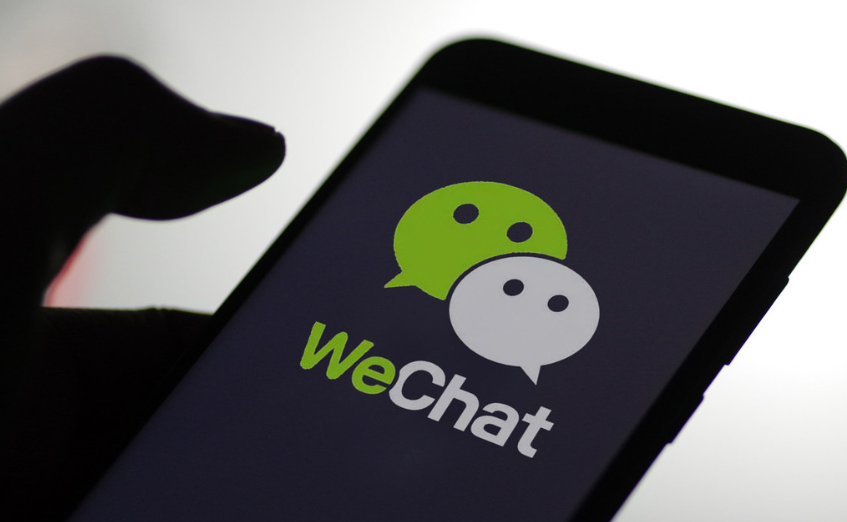 AI
AI
 AI
AI
 AI
AI
China’s top social media platforms, including ByteDance Ltd.’s TikTok clone Douying and Tencent Holdings’ WeChat, rolled out new features today to try to comply with a new law that mandates all artificial intelligence content is clearly labeled as such.
The new content labeling rules mandate that all AI-generated content posted on social media is tagged with explicit markings visible to users. It applies to AI-generated text, images, videos and audio, and also requires that implicit identifiers, such as digital watermarks, are embedded in the content’s metadata.
The law, which was first announced in March by the Cyberspace Administration of China, reflects Beijing’s increased scrutiny of AI at a time when concerns are rising about misinformation, online fraud and copyright infringement.
According to a report in the South China Morning Post, the law comes amid a broader push by Chinese authorities to increase oversight of AI, as illustrated by the CAC’s 2025 Qinglang campaign, which aims to clean up the Chinese language internet.
WeChat, one of the most popular messaging platforms in China, which boasts more than 1.4 billion monthly active users globally, has said that all creators using its platform must voluntarily declare any AI-generated content they publish. It’s also reminding users to “exercise their own judgement” for any content that has not been flagged as AI generated.
In a post today, WeChat said it “strictly prohibits” any attempts to delete, tamper with, forge or conceal AI labels added by its own automated tools, which are designed to pick up any AI-generated content that’s not flagged by users who upload it. It also reminded users against using AI to spread false information or for any other “illegal activities.”
Meanwhile Douyin, which has around 766 million monthly active users, said in a post today that it’s encouraging users to add clear labels to every AI-generated video they upload to its platform. It will also attempt to flag AI-generated content that isn’t flagged by users by checking its source via its metadata.
Several other popular social media platforms made similar announcements. For instance, the microblogging site Weibo, often known as China’s Twitter, said on Friday it’s adding tools for users to tag their own content, as well as a button for users to report “unlabeled AI content” posted by others.
RedNote, the e-commerce-based social media platform, issued its own statement on Friday, saying that it reserves the right to add explicit and implicit identifiers to any unidentified AI-generated content it detects on its platform.
Many of China’s best known AI tools are also moving to comply with the new law. For instance, Tencent’s AI chatbot Yuanbao said on Sunday it has created a new labeling system for any content it generates on behalf of users, adding explicit and implicit tags to text, videos and images. In its statement, it also advised users that they should not attempt to remove the labels it automatically adds to the content it creates.
When the CAC announced the law earlier this year, it said its main objectives were to implement robust AI content monitoring, enforce mandatory labeling and apply penalties to anyone who disseminates misinformation through AI or uses the technology to manipulate public opinion. It also pledged to crack down on deceptive marketing that uses AI, and strengthen online protections for underage users.
Constellation Research Inc. analyst Holger Mueller said it’s interesting, but perhaps not surprising to see that China has become the first major nation to implement AI labeling controls in an effort to make it easier to determine if content is authentic or not.
“One critical aspect will be how visible the tags are. Are they aimed at users, or more for the government and its branches?”, he asked. “It will also be interesting to see if and how other countries and governments try and deal with the challenge of authenticating content posted online.”
The European Union is set to implement its own AI content labeling requirements in August 2026, as part of the EU AI Act, which mandates that any content “significantly generated” by AI must be labeled to ensure transparency. The U.S. has not yet mandated AI content labels, but a number of social media platforms, such as Meta Platforms Inc., are implementing their own policies regarding the tagging of AI-generated media.
Support our mission to keep content open and free by engaging with theCUBE community. Join theCUBE’s Alumni Trust Network, where technology leaders connect, share intelligence and create opportunities.
Founded by tech visionaries John Furrier and Dave Vellante, SiliconANGLE Media has built a dynamic ecosystem of industry-leading digital media brands that reach 15+ million elite tech professionals. Our new proprietary theCUBE AI Video Cloud is breaking ground in audience interaction, leveraging theCUBEai.com neural network to help technology companies make data-driven decisions and stay at the forefront of industry conversations.